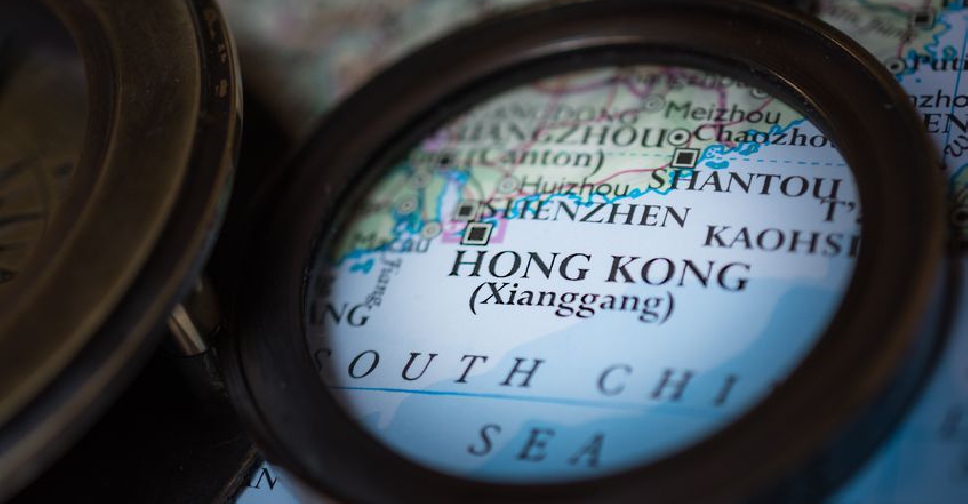
Hong Kong, one of the world's top luxury shopping destinations, is losing its lustre as high-end retail properties go vacant and famous foreign brands reduce exposure to the city in favour of opening new outlets in mainland China.
Glitzy Hong Kong shopping streets once packed with luxury stores that attracted 56 million visitors in pre-pandemic 2019 now have about half of their shop units sitting vacant, according to property management companies.
Rents in Tsim Sha Tsui are down 41 per cent from pre-pandemic levels, according to property firm Cushman & Wakefield, and last year the retail district was displaced as the world's most expensive shopping real estate by New York's Fifth Avenue.
Canton Road, the most famous shopping street in Tsim Sha Tsui, has a vacancy rate of about 53 per cent, according to global property company Savills.
"Most luxury retailers don't think Hong Kong will return to the dizzy levels of 2014 when the market here peaked," said Simon Smith, Savills' senior director of research and consultancy in Hong Kong.
"If you walk around the major shopping areas you won't see the queues outside luxury boutiques or if you do they are very short," Smith said.
In place of stores shut by Tiffany, Valentino, Burberry and other big brands over the last three years, including in Tsim Sha Tsui, Central and Causeway Bay shopping districts, pharmacies and sports apparel outlets for brands like Adidas and Sweaty Betty have moved in.
The store closures came after pro-democracy protests and the crackdown that followed pushed sales into a slump which worsened under nearly three years of stringent COVID rules.
Over that period, Hong Kong suffered around a 30 per cent plunge in overall retail sales compared to 2018 levels, largely due to a tumble in mainland visitors because of travel restrictions. Tourists from greater China are the main driver of Hong Kong's branded retail and luxury goods market.
Hong Kong retail data doesn't break out luxury goods separately but the sector was hit hard as China accounted for almost 80 per cent of inbound tourists in 2019. Jewellery, watches, clocks and valuable gifts sales in 2022 at HK$38.8 billion ($4.9 billion), for instance, were less than half their 2018 value.
And while inbound travellers in January tripled from December as COVID restrictions were lifted and travel resumed, arrivals were still only about 10 per cent of 2019 levels.
MANY MORE ALTERNATIVES
Many luxury brands expanded in mainland China during the pandemic, opening stores in far-flung locations to reach consumers unable to travel. Tourist destinations such as resort island Hainan and Macau also have become popular alternatives as China sought to develop multiple duty and tax free destinations.
Duty free malls in Hainan, where tourists are the main customers, reported an 84 per cent jump in sales in 2021, the latest data from consultancy Bain & Co showed, outpacing the mainland's average growth rate of 36 per cent in luxury sales for that year.
Hainan also accounted for 13 per cent of China's domestic luxury spend in 2021 versus 6 per cent pre-pandemic, and tax regulations are set to ease further, allowing more duty-free stores to open.
That helped China's domestic luxury sales double to 471 billion yuan ($68.8 billion) in 2021 from 2019, according to Bain. That outstripped total Hong Kong retail sales from a peak hit in 2013 at HK$494.5 billion ($63.0 billion), according to the city's statistics department.
This imbalance in favour of increasing sales in China had big luxury brands opening stores across the country over the last few years, according to filings and company websites.
Hermes with 27 stores in the mainland, opened a new, enlarged store in Nanjing in January, relocating to upscale mall Deji Plaza. It first opened a store in 2010 in the eastern city.
Gucci owner Kering opened nine boutiques in Greater China in 2021; upscale men's suit maker Brioni opened stores in Chengdu, Wuhan and Shenzhen; jeweller Boucheron opened two mainland stores.
Saint Laurent, another Kering brand, opened its first flagship stores in Shanghai and Beijing in 2019. The group's jeweller Qeelin has also been expanding in the mainland and opened its largest flagship store in China in Shanghai in 2021.
Despite the increasing investment in the mainland, some are still hopeful about the long-term outlook for Hong Kong as global economies and holiday travel recover.


 Nasdaq set to confirm bear market as Trump tariffs trigger recession fears
Nasdaq set to confirm bear market as Trump tariffs trigger recession fears
 Dana Gas and Crescent Petroleum exceed 500M boe in Khor Mor field
Dana Gas and Crescent Petroleum exceed 500M boe in Khor Mor field
 China to impose tariffs of 34% on all US goods
China to impose tariffs of 34% on all US goods
 Shares bruised, dollar crumbles as Trump tariffs stir recession fears
Shares bruised, dollar crumbles as Trump tariffs stir recession fears
 Wall Street futures sink as tariffs fuel recession fears
Wall Street futures sink as tariffs fuel recession fears




